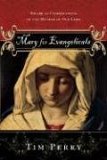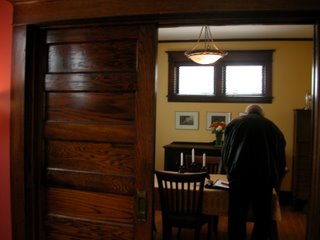Doctrine, Discipline, and +John David
This made a recent letter to the diocese of San Joaquin, from the Presiding Bishop, pique my interest. The Presiding Bishop is unhappy with what is happening in the diocese. ++Katherine writes:
I have seen reports of your letter to parishes in the Diocese of San Joaquin, which apparently urges delegates to your upcoming Diocesan Convention to take action to leave the Episcopal Church. I would ask you to confirm the accuracy of those reports. If true, you must be aware that such action would likely be seen as a violation of your ordination vows to "uphold the doctrine, discipline, and worship of Christ as this Church has received them." I must strongly urge you to consider the consequences of such action, not only for yourself but especially for all of the Episcopalians under your pastoral charge and care. (Italics mine.)This is hugely inconsistent with the existing practice within her Church. When I was ordained a deacon, and then a priest, I took similiar ordination vows, except that I was ordained according to the Canadian ordination rite of the Book of Alternative Services. So when I made my vows to uphold the doctrine and discipline of the Church, the Church referred to is the Anglican Church of Canada. As if to undermine any attempt to universalise this doctrine and discipline, I twice signed the Solemn Declaration of 1893 at my ordinations, a uniquely Canadian document specifically about doctrine and discipline.
My ordination vows were Canadian ordination vows. But to limit my priestly ministry to the Canadian church would be to undermine the tacit catholicity of the Anglican Comunion. So, when I applied for licenses to preside in the dioceses of California and Northern California, I was not re-ordained. My orders were considered valid, despite the fact that my vows were certainly Canadian ordination vows, circumscribed as they were by the Solemn Declaration and the Canadian ordination rite.
The reception of local ordination vows by other Churches in the Anglican Communion is a practice that points to the fact that, despite all of the local circumscription of our ordination vows, there is no fundamental incoherence between them. Canadian ordination vows, in practice, cohere with American ordination vows. The doctrines and disciplines of disparate Anglican Provinces are not seen to be, at least on the ground, in any kind of conflict. Our vows are catholic in practice, even when they are not catholic in appearance.
While I have some reservations about where +John David of San Joaquin is going with his diocese, to say that he is rejecting the doctrine and dicipline of the Church is simply to bark up the wrong tree. Our existing practice of interpreting ordination vows, despite their apparently local character, assumes their catholicity. In this sense, +John David's attempt to get a new primate does not jeapardise his ordination vows. Unless we wish to change our practice of mutual recognition of ordinations, which I certainly hope we do not, the doctrine and discipline of the Episcopal Church cannot be seen to be in conflict with the doctrine and discipline of any other Anglican Province. Our actions simply show otherwise.
Thanks to Thinking Anglicans for pointing me towards the article.
Labels: Anglican Communion, Autobiography










